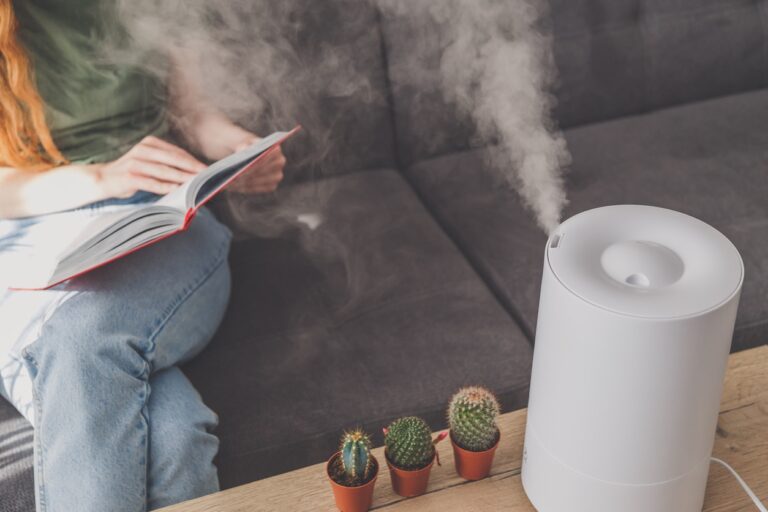Dry air is a common issue, especially when you spend a lot of time indoors. While it might seem like a minor inconvenience, the impact of dry air on our health, particularly on the health of our nose and throat, can be significant. Let’s delve into how dry air can affect our nose and throat health and explore strategies to mitigate these effects.
Understanding the Impact of Dry Air

You have likely experienced dry skin or red, itchy eyes at least once. These are common symptoms on airplanes or when driving through high elevations. Let’s look at how dry air can impact each part of your nose and throat system.
Nasal Passages
Dry air can cause the mucous membranes lining the nasal passages to become dehydrated, leading to discomfort such as nasal congestion, irritation and nosebleeds. The mucus in your nose is responsible for trapping bacteria, viruses and debris. When the mucus is dried out, you may be more susceptible to sinus infections, allergy inflammation and more.
Throat
The throat is another area that can be adversely affected by dry air. When the air lacks moisture, it can lead to throat irritation, soreness and coughing. Chronic dryness may also contribute to the development of conditions such as pharyngitis and laryngitis.
Mitigating the Effects of Dry Air
Fortunately, there are several strategies to combat the adverse effects of dry air on ENT health, including:
- Humidifier. Investing in a humidifier for your home or office can help maintain optimal humidity levels between 40% and 60%. Even if you do not wish to run a humidifier all day, using a humidifier in the bedroom while sleeping can alleviate nasal congestion and throat dryness, promoting better sleep and overall well-being.
- Hydration. Staying hydrated is essential for keeping mucous membranes moist. Drinking an adequate amount of water throughout the day can help prevent dehydration and soothe dryness in the throat and nasal passages. If you struggle to drink enough water, try grabbing a morning juice from the Corner Blend to start your hydration off right.
- Environmental modifications. Making minor adjustments to your environment can also make a difference. For example, avoiding overly heated rooms and spending a little more time outside can help maintain healthy moisture levels in your nose and throat.
Dry air may seem like a minor inconvenience, but its impact on your nose and throat health should not be overlooked. From nasal congestion to throat irritation and ear discomfort, the effects of low humidity levels can significantly impair our well-being. By understanding these effects and implementing strategies to mitigate them, you can better protect your ears, nose and throat from the adverse effects of dry air.
For more information about caring for your ENT health, contact Palmetto ENT & Allergy today to make an appointment with one of our associates.
